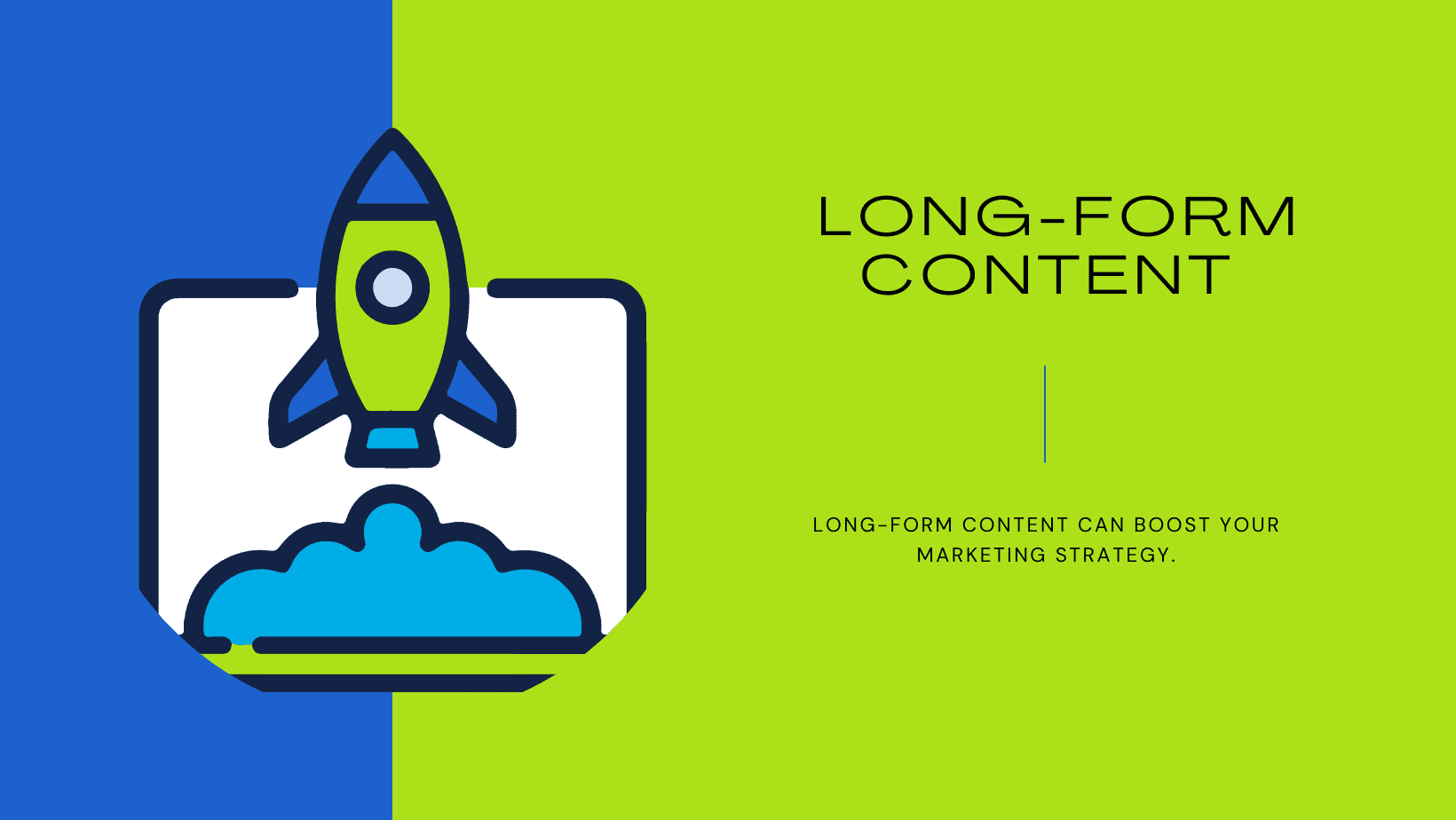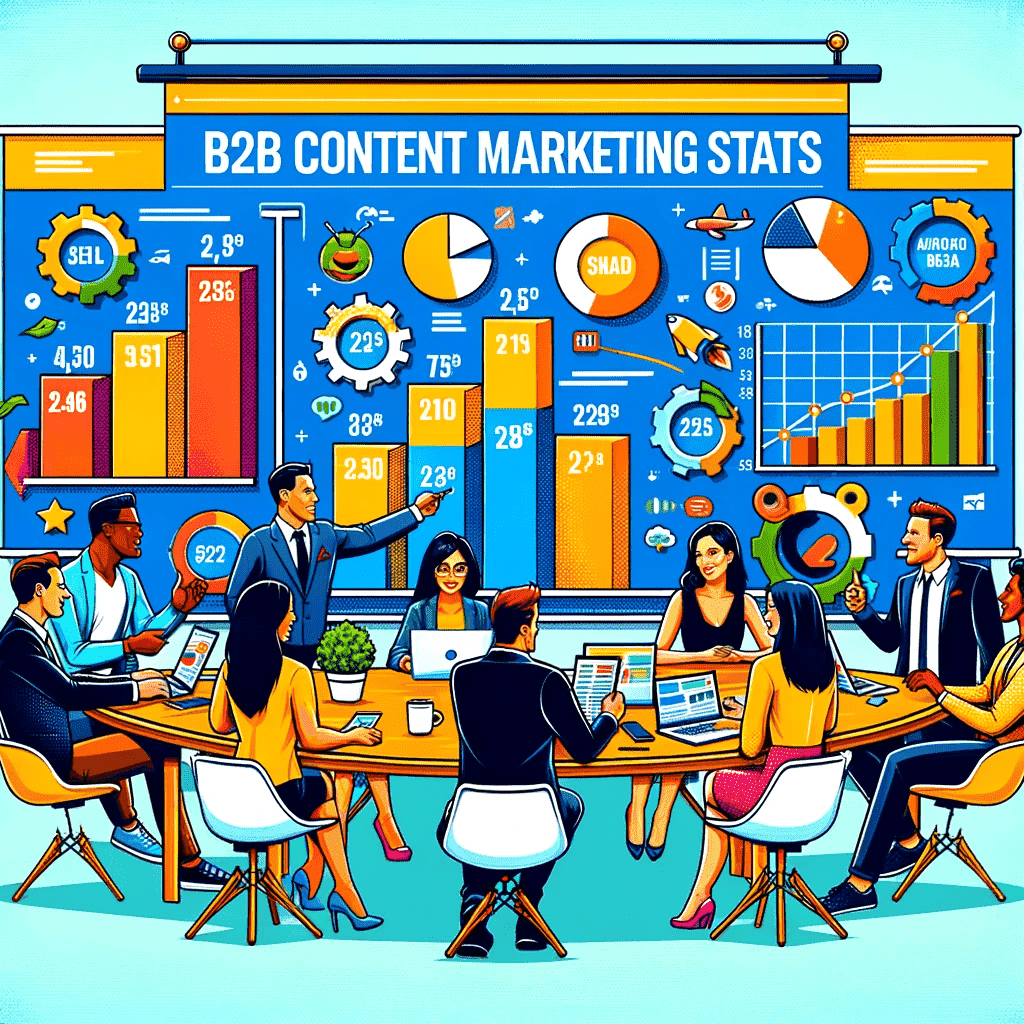Captivate, engage and convert your audience and drive results.
The B2B marketing landscape is a complex and ever-evolving ecosystem, where businesses fight tooth and nail to capture the attention of their target audience. In this sea of competing voices, one strategy stands out as a potent force for building trust, generating leads, and ultimately driving conversions: content marketing.
Gone are the days of interruptive marketing tactics. Today’s B2B buyers are discerning and information-hungry, seeking out insightful content that educates, engages, and empowers them to make informed decisions.
This is where content marketing shines. By strategically leveraging valuable content, businesses can establish themselves as trusted resources, foster meaningful connections with potential customers, and ultimately guide them along the buyer’s journey.
Understanding current trends, analysing key statistics, and implementing measurable strategies are all crucial for crafting a B2B content marketing plan that delivers tangible results.
We’ll unpack the significance of these statistics, provide actionable takeaways, and equip you with the knowledge and insights necessary to develop a winning content strategy that propels your B2B marketing efforts to new heights.
Key B2B content marketing stats:
1. B2B content marketing budgets are on the rise.

Investing in quality content marketing pays off.
What is B2B content marketing?
B2B content marketing focuses on creating and sharing valuable content, like blog posts, videos, or infographics, designed to attract and engage businesses. It aims to establish your brand as an industry expert, generate leads, and ultimately drive profitable customer actions. It’s about providing informative and relevant content that resonates with your target audience and fosters long-term business relationships.
“45% of B2B content marketers expect their content marketing budget to increase in 2024.”
The 45% increase in B2B content marketing budgets highlights the strategic value businesses are placing on content for attracting and nurturing leads, establishing brand authority, and ultimately driving conversions. This increased investment signifies a move away from traditional, interruptive marketing tactics and towards building long-term relationships with potential customers through informative and engaging content.
Key takeaways:
- Focus on creating high-quality content: Invest in well-researched, informative, and visually appealing content that resonates with your target audience. Conduct thorough research, utilise relevant data and statistics, and ensure your content is grammatically sound and visually appealing.
- Diversify your content formats: Explore various formats like blog posts, white papers, infographics, videos, and webinars to cater to different learning preferences. Experiment with different formats to see what resonates best with your audience and consider conducting surveys or polls to gather insights.
- Content consistency is crucial: By developing a content calendar that aligns with your business goals and marketing objectives, and adhering to a regular publishing schedule, you can maintain audience engagement and establish your brand as a reliable source of information. Ensuring consistent content creation and publishing builds trust and anticipation among your audience, reinforcing your commitment to delivering value consistently.
Kyyte’s insight:
Investing in high-quality content creation is no longer an option, it’s a necessity in today’s B2B landscape. By prioritising well-researched, informative, and visually engaging content, you can attract and retain your target audience, establish yourself as a thought leader, and ultimately drive conversions. And remember, consistency is key.
2. Thought leadership builds trust.

Position yourself as an industry expert.
What is B2B thought leadership?
B2B thought leadership involves sharing valuable industry expertise and insights through content like articles, webinars, or social media. It aims to position your business as a trusted advisor, attracting potential clients, building trust, and ultimately boosting brand awareness and sales opportunities.
“53% of B2B marketers rank thought leadership content as their top priority for budget increase in 2024.”
The prioritisation of thought leadership content by B2B marketers emphasises the value of establishing yourself as a trusted resource in your industry. By sharing valuable insights, industry trends, and expert opinions through blog posts, white papers, or webinars, you position yourself as a thought leader and gain the trust of potential customers. This trust translates into increased brand awareness, stronger brand reputation, and ultimately, higher conversion rates.
Key takeaways:
- Identify your area of expertise: Focus on topics where you can demonstrate your deep knowledge and unique perspective. Conduct market research to understand current industry trends and identify areas where your expertise can offer valuable insights to your target audience.
- Offer valuable insights: Share practical advice, industry trends, and data-driven analysis to educate your audience and address their challenges. Conduct thorough research, cite credible sources, and provide actionable takeaways that your audience can implement in their own businesses.
- Engage with your audience: Foster discussions by responding to comments, participating in industry forums, and actively engaging with your audience. Respond to comments and questions promptly, participate in relevant online communities, and actively engage with your audience to build relationships and establish yourself as a thought leader.
Kyyte’s insight:
Thought leadership content plays a crucial role in building trust and establishing your brand as an authority within your industry. By consistently sharing valuable insights, industry trends, and expert opinions, you can position yourself as a trusted resource, and attract potential customers
3. Personalisation matters for conversions.

Tailor your message for maximum impact.
What is B2B marketing personalisation?
B2B marketing personalisation tailors messaging and content to the specific needs and interests of individual businesses or buyer personas within your target audience. It goes beyond generic marketing blasts by utilising data and analytics to understand audience segments, their challenges, and buying journeys. This allows for targeted content, communication, and offers that resonate more deeply, leading to increased engagement, conversion rates, and stronger business relationships.
“73% of customers expect better personalisation as technology advances”
This statistic emphasises the growing customer demand for personalised experiences, especially as technology facilitates more sophisticated approaches. In the B2B landscape, where generic marketing messages often fall flat, personalisation is no longer a luxury, but a necessity. It goes beyond simply including a name in an email; it requires a deep understanding of your audience’s unique needs, challenges, and buying journey stage.
Key takeaways:
- Leverage data and analytics: Utilise website visitor data, customer demographics, and marketing automation tools to segment your audience based on relevant criteria like industry, company size, and interests.
- Personalise your content and messaging: Tailor your content topics, language style, and call-to-actions to resonate with each audience segment’s specific needs and interests. For example, create targeted blog posts addressing challenges specific to different industries or offer case studies showcasing solutions relevant to different company sizes.
- Personalise your email marketing: Segment your email list and craft targeted campaigns with personalised subject lines, content offers, and recommendations. This can significantly increase open rates, click-through rates, and conversions.
Kyyte’s insight:
By deeply understanding your audience and tailoring your messaging to meet their specific needs and challenges, you can significantly improve your engagement and conversion rates. Personalisation is not just a trend; it’s a proven strategy to create more meaningful connections, drive better results, and help you stand out from the crowd.
4. Long-form content retains value.

Dive deep and captivate your audience.
What is long-form content?
Long-form content refers to pieces of writing that typically exceed 2,500 – 3,000 words, although the exact definition can vary. It aims to delve deeper into a topic than in shorter formats, providing comprehensive information, detailed analysis, and valuable insights. Examples include in-depth blog posts, white papers, ebooks, and reports. Long-form content can establish your expertise, improve SEO, and engage readers with a more immersive experience.
“Posts with 3,000+ words get 138% more page views than those with less than 500 on average.”
The continued emphasis on long-form content (3,000+ words) highlights the value of in-depth content in B2B marketing. While shorter pieces have their place, longer-form content allows you to delve deeper into complex topics, establish yourself as an expert in your field, and provide comprehensive information that caters to users seeking detailed knowledge.
Key takeaways:
- Identify topics that warrant in-depth exploration: Choose complex subjects, industry trends, or thought leadership pieces that benefit from a comprehensive exploration.
- Structure your content effectively: Utilise headings, subheadings, bullet points, and visuals to break down complex information and improve readability.
- Offer valuable insights and data-driven analysis: Support your arguments with credible sources, industry data, and practical examples to enhance the credibility and value of your content.
Kyyte’s insight:
The investment in long-form content is an investment in your brand’s authority and audience engagement. By providing comprehensive, deeply researched, and well-structured content, you can offer immense value to your readers, encouraging them to see your brand as a trusted resource. This approach not only enhances your SEO performance but also fosters a stronger connection with your audience, encouraging longer visit times, increased engagement, and ultimately, a higher conversion rate.
5. Email marketing delivers ROI.

A reliable channel for nurturing leads.
What is email marketing?
Email marketing is a digital marketing strategy that involves sending targeted and personalised emails to a list of subscribers. It aims to nurture leads, build relationships with customers, promote products or services, and ultimately drive conversions like sales or website visits. Effective email marketing involves creating engaging content, segmenting your audience for targeted messaging, and measuring campaign performance to optimise future efforts.
“The average ROI for email marketing in the software and technology industry is 36:1, showcasing the range of potential returns.”
The impressive 36:1 ROI statistic for email marketing emphasises its continued effectiveness as a B2B marketing tool. Email allows you to nurture leads, build relationships, and drive sales by delivering targeted content and personalised messages directly to your audience’s inboxes.
Key takeaways:
- Segment your audience: Categorise your email list based on demographics, interests, or buying journey stage to ensure your messages are relevant and resonate with each segment.
- Personalise your email content: Craft personalised subject lines, greetings, and content offers to grab attention and increase engagement.
- Optimise your email design and deliverability: Ensure your emails are visually appealing, mobile-friendly, and land in your target audience’s inboxes.
Kyyte’s insight:
Email marketing remains a cornerstone of effective B2B marketing strategies, offering unmatched ROI by directly connecting with leads at various stages of their buying journey. Through strategic segmentation and personalisation, email marketing fosters deep relationships with prospects, guiding them towards making informed purchasing decisions. Its consistent ability to deliver targeted messages makes it an invaluable tool for nurturing leads and driving sales.
6. Mobile-first approach.

Reaching B2B buyers on the go.
What is a mobile-first approach?
A mobile-first approach in B2B marketing involves optimising your entire marketing strategy for mobile devices. This means designing your website, content, and campaigns with mobile users in mind first, rather than adapting them from a desktop-centric perspective.
“80% of B2B buyers use mobile phones at work.”
B2B buyers are constantly on the move, juggling busy schedules and making crucial decisions from their mobile devices. In fact, a staggering 80% of B2B buyers use mobile phones at work, highlighting the critical role mobile media plays in influencing purchase intent. This statistic underscores the urgent need for businesses to adopt a mobile-first marketing strategy.
Key takeaways:
- Mobile-first mindset: Prioritise mobile optimisation across all aspects of your marketing strategy, from website design to content creation and campaign execution.
- Focus on user experience: Deliver a seamless and user-friendly experience for mobile users, ensuring easy navigation, fast loading times, and content optimised for smaller screens.
- Embrace micro-content: Alongside your other content, develop engaging and informative content formats like short videos, infographics, and bite-sized blog posts that cater to the shorter attention spans of mobile users.
Kyyte’s insight:
Neglecting mobile optimisation in today’s digital landscape can significantly hinder your ability to reach and engage B2B buyers. By adopting a mobile-first approach, you can ensure your brand stays visible, accessible, and relevant to your target audience on their preferred devices, ultimately driving conversions and achieving your business goals.
7. Account-based marketing gains traction.

Focus on high-value accounts.
What is account-based marketing?
Account-based marketing (ABM) is a targeted B2B strategy focusing on identifying and engaging high-value individual accounts that have the greatest potential to become profitable customers. It goes beyond traditional marketing tactics and instead tailors campaigns and outreach specifically to these key accounts. This personalised approach aims to build deeper relationships, increase engagement, and ultimately close more deals with these high-value targets.
“96% of B2B marketers leveraging account-based marketing report a positive impact on marketing’s success.”
The growing adoption of account-based marketing (ABM) reflects a shift towards targeting and nurturing high-value accounts with personalised marketing efforts. This targeted approach allows you to dedicate resources to building deeper relationships with key decision-makers within these accounts, leading to increased sales opportunities and improved return on investment (ROI).
Key takeaways:
- Identify your ideal customer profile (ICP): Define the characteristics and needs of your ideal accounts to ensure your ABM efforts are targeted effectively.
- Develop personalised content and outreach strategies: Create targeted content pieces, webinars, or case studies that address the specific challenges and interests of your identified accounts.
- Nurture relationships with key decision-makers: Engage with key contacts within your target accounts through personalised outreach, thought leadership content, and relevant industry insights.
Kyyte’s insight:
Adopting an account-based marketing strategy is more than a tactical shift — it’s a focused approach to B2B marketing that recognises the importance of personalised engagement with high-value accounts. By concentrating your efforts on fewer, more valuable prospects and tailoring your strategies to meet their unique needs, ABM can significantly impact your sales outcomes and ROI. Focus, personalisation, and strategic engagement are the cornerstones of a successful ABM program.
8. Data-driven approach drives results:

Measure, analyse, and optimise.
What is a data-driven approach?
A data-driven approach involves making decisions and taking actions based on data and analysis rather than intuition or guesswork. It emphasises collecting, analysing, and interpreting data to gain insights, solve problems, and achieve specific goals. This approach can lead to more informed decisions, improved efficiency, and better results across various aspects of business.
“B2B content marketing strategies that leverage data and analytics outperform those that don’t by 38%.”
The statistic highlighting the 38% performance improvement of data-driven B2B content marketing strategies underscores the critical role of data and analytics in achieving success. By measuring key metrics, analysing user behaviour, and tracking content performance, you gain valuable insights to optimise your strategy and make data-driven decisions.
Key takeaways:
- Identify key performance indicators (KPIs): Define relevant metrics that align with your content goals, such as website traffic, engagement rates, lead generation, and conversions.
- Utilise analytics tools: Leverage web analytics platforms, email marketing software, and social media insights to track campaign performance and user behaviour.
- Analyse data and draw actionable insights: Regularly analyse your data to identify trends, understand what resonates with your audience, and optimise your content strategy for improved results.
Kyyte’s insight:
A data-driven approach is fundamental to modern B2B marketing, allowing teams to cut through the noise and focus on what truly works. By basing decisions on data, you can continuously refine your content strategy to better align with audience needs, maximise engagement, and drive meaningful results. This methodical approach to content creation and distribution ensures your marketing efforts are both efficient and effective, leading to sustained growth and success.
9. Customer-centricity is key.

Put your audience at the centre of your marketing strategy.
What is customer-centricity?
Customer-centricity is a business philosophy that places the customer at the heart of all decision-making and actions. It prioritises understanding customer needs, wants, and expectations, and then aligning all aspects of the business to deliver a superior customer experience.
“82% of B2B marketers say their content strategy is focused on meeting the specific needs and challenges of their target audience.”
The statistic highlighting the 82% focus on customer needs in B2B content marketing strategies emphasises the paramount importance of understanding and catering to your target audience. By prioritising customer-centricity, you can create content that resonates with their needs, addresses their challenges, and offers solutions that truly matter.
Key takeaways:
- Conduct audience research: Utilise surveys, interviews, and social media listening to understand your audience’s pain points, preferences, and content consumption habits.
- Develop buyer personas: Create detailed profiles of your ideal customers, outlining their demographics, challenges, and decision-making processes.
- Focus on providing value: Ensure your content offers solutions to their problems, educates them on relevant topics, and ultimately helps them achieve their goals.
Kyyte’s insight:
Adopting a customer-centric perspective in your content marketing strategy is crucial for building trust, fostering loyalty, and driving long-term business growth. By deeply understanding your audience and tailoring content to meet their needs, you not only enhance the relevance and impact of your marketing efforts but also position your brand as a valuable resource and partner in their success. This approach ensures your content marketing not only flies but soars, achieving unparalleled engagement and conversion rates.
10. Video marketing takes centre stage.

Captivate your audience with visual storytelling.
What is B2B video marketing?
B2B video marketing is the strategic use of video content to attract and engage businesses. It involves creating informative, engaging, and visually appealing videos that address the specific needs and challenges of your target audience. These videos can showcase your expertise, educate potential clients about your solutions, and ultimately drive business growth.
“69% of B2B marketers think their organisation will increase investment in video in 2024.”
The anticipated surge in video investment by B2B marketers reflects the growing importance of visual storytelling in B2B content marketing. Videos are engaging, informative, and easily digestible, making them ideal for explaining complex concepts, showcasing products or services, and building emotional connections with viewers. This trend highlights the need for B2B businesses to move beyond text-based content and leverage the power of video to capture attention, educate audiences, and drive results.
Key takeaways:
- Explore various video formats: Consider explainer videos, customer testimonials, industry insights, or behind-the-scenes glimpses to connect with your audience on a deeper level. Experiment with different video formats to see what resonates best with your target audience and consider their specific needs and interests.
- Optimise for mobile viewing: Ensure your videos are accessible and displayed seamlessly across various devices, including smartphones and tablets. Test your videos on different devices and platforms to ensure optimal viewing experience and accessibility for your audience.
- Promote your videos effectively: Utilise social media platforms, email marketing campaigns, and your website to share your video content and reach a wider audience. Develop a comprehensive video promotion strategy that leverages various channels and considers paid advertising options to reach a wider audience.
Kyyte’s insight:
The rise of video content consumption necessitates that B2B marketers embrace this powerful medium. By exploring various video formats, optimising for mobile viewing, and implementing effective promotion strategies, you can leverage the captivating nature of video to engage your audience, educate them about your offerings, and ultimately drive conversions.
Conclusion:
Content marketing – your B2B growth engine in the digital age.
The impact of B2B content marketing cannot be overstated. As the data presented throughout this blog highlights, valuable content plays a pivotal role in attracting, engaging, and nurturing leads, ultimately driving conversions and propelling business growth.
By prioritising a data-driven approach, understanding key trends, and implementing the strategies outlined above, you can craft a content marketing engine that fuels your B2B success.
Remember, the journey to content marketing mastery is an ongoing process. Continuously stay informed about industry trends, embrace experimentation, and adapt your approach based on data insights and audience feedback.
When you foster a culture of learning and improvement, you can ensure your content marketing strategy remains relevant and effective, delivering long-term value for your business.
In conclusion, B2B content marketing presents a powerful opportunity to connect with your target audience, establish yourself as an industry thought leader, and ultimately achieve your business goals. Embrace the creation of valuable content, leverage data-driven insights, and embark on a continuous journey of learning and adaptation. By doing so, you can unlock the full potential of content marketing and propel your B2B brand to new heights of success in the ever-evolving digital age.
